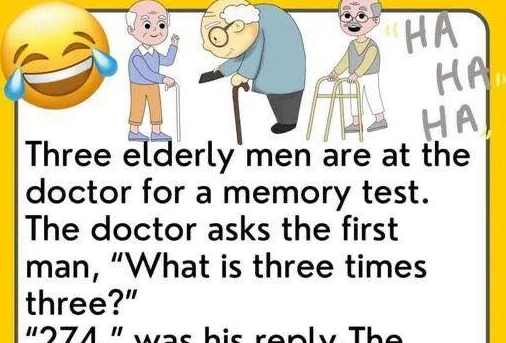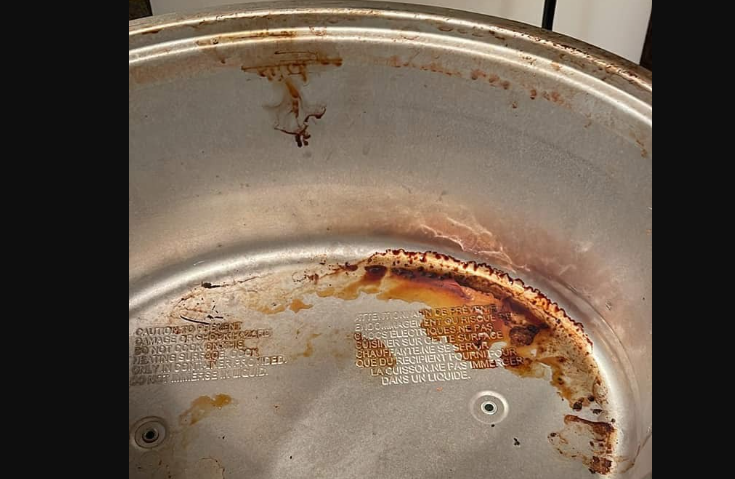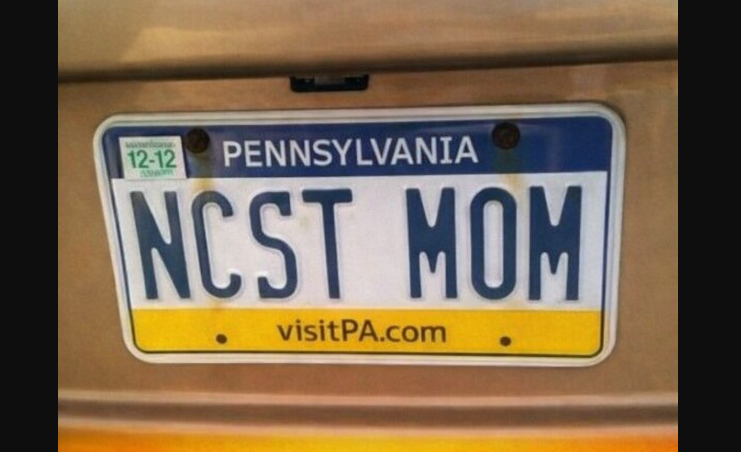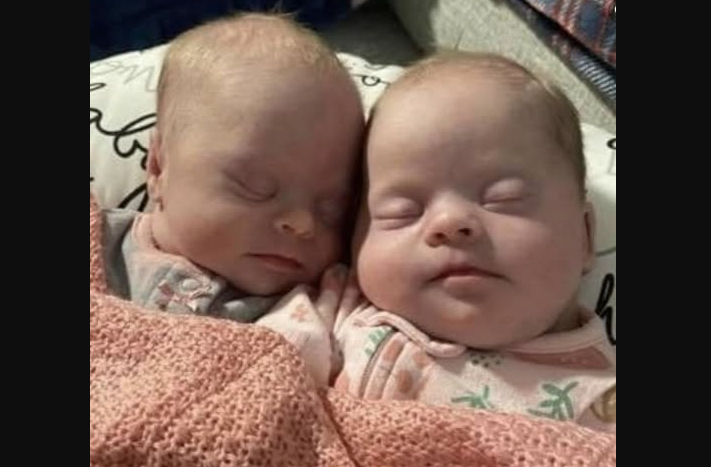Three elderly gentlemen sit in the doctor’s office for a routine memory evaluation. The doctor faces the first man and asks calmly, “What is three times three?” The man straightens up, smiles widely and declares, “274!” He appears completely satisfied with his answer, as if he has unlocked an ancient secret. The doctor maintains a kind expression, makes a quick note on the chart, and quietly marvels at the creative path that led to such a response. He then turns to the second gentleman and repeats the same question. Without hesitation, the man answers, “Tuesday,” delivering the word with absolute certainty, as though numbers and days of the week share the same family tree. The doctor hides his amusement behind a professional nod and braces himself for whatever might come next.
When the doctor finally poses the question to the third man, the nurse standing just outside the door presses her hand to her mouth to stifle a giggle. Everyone in the room waits expectantly. The third gentleman furrows his brow for a few thoughtful seconds, then announces with quiet confidence, “Nine.” A wave of relief washes over the doctor’s face; at last, a correct answer. He opens his mouth to offer genuine praise, but before a single word escapes, the man leans forward and adds with a mischievous grin, “I got that one because I borrowed your calculator while you were writing.” For a brief moment the office falls perfectly still, and then the doctor bursts into warm laughter. The answer may not have come from memory alone, yet it carries its own gentle truth: every person finds his own clever way to navigate the small struggles that arrive with advancing years, and a spark of playful wit often lights the path from confusion to contentment.
Moved by the moment, the doctor sets aside the formal test sheets. He invites the three friends to share real memories instead—the vivid stories from decades past that still glow brightly in their hearts. The first man describes how, as a boy, he built crystal radios from oatmeal boxes and scraps of wire, listening to distant voices drift through the night. The second gentleman recounts hitchhiking across counties with only a few dollars in his pocket, guided by nothing more than youthful wonder and the open road. The third tells of his lifelong work repairing watches and clocks, explaining how he learned that even when hands slow down or skip a beat, the mechanism of life keeps moving forward in its own patient rhythm. The room fills with the sound of their voices, rich with detail and feeling, turning a simple medical visit into something far more human and healing.
By the time they prepare to leave, the doctor understands that numbers on a memory test tell only a tiny part of any story. These men need conversation, recognition, and the chance to be heard. With that in mind, he creates a weekly gathering at the clinic called the Memory Circle, a welcoming space where older adults can meet, swap tales, laugh together, and keep their spirits sharp. In the weeks that follow, the once-quiet waiting area transforms into a lively circle of chairs filled with animated voices and bright smiles. Visitors arrive early, eager to share photographs, recall old songs, and celebrate the lives they have lived.
The original three gentlemen never miss a meeting. They still sometimes announce that three times three equals a random number or confidently declare the wrong day of the week, but no one minds. mistakes have become part of their charm. They have discovered something far greater than perfect recall: their worth remains undiminished by years. Their gentle humor, hard-earned wisdom, and the warmth they offer one another prove that growing older brings its own kind of beauty. Memory may soften around the edges, yet the heart remembers how to laugh, how to listen, and how to make every new day feel like a gift. And in that lively circle of friends, every story told becomes a quiet victory over time itself.






